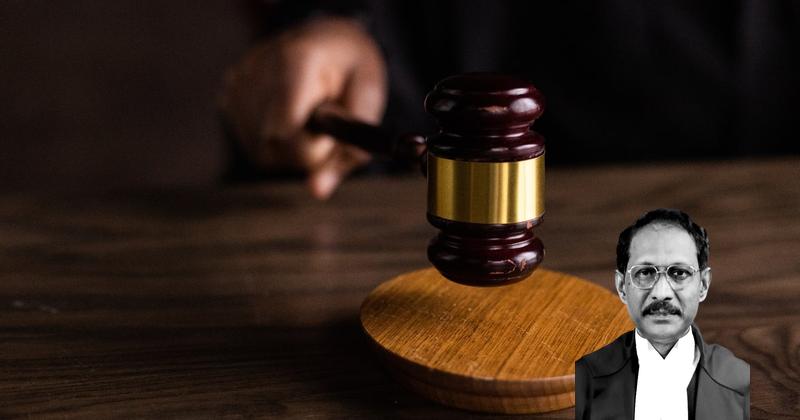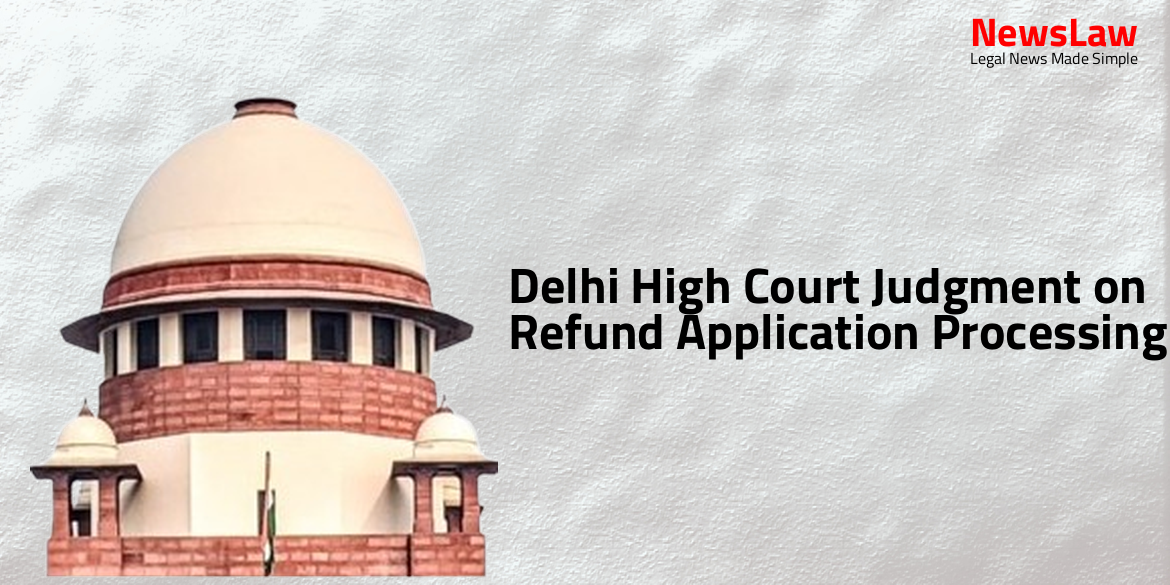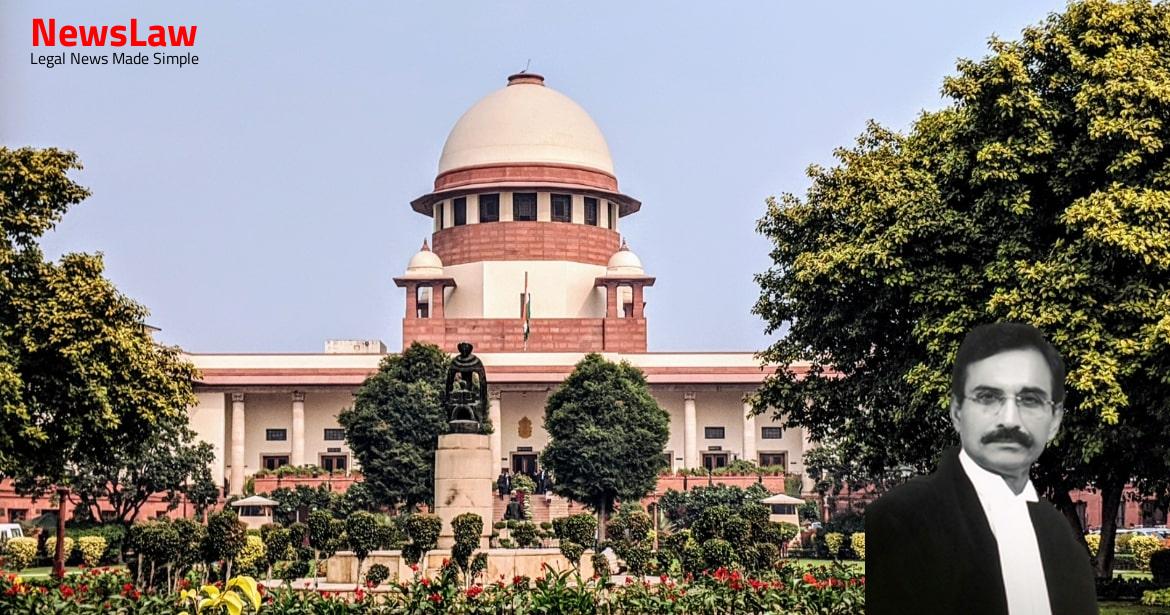The Supreme Court of India recently delivered a significant judgment in the case of Committee-GFIL v. Libra Buildtech Private Limited & Ors. concerning the refund of stamp duty. The case involved complex legal issues surrounding the timely application for refund and the interpretation of Sections 47 and 48 of the Maharashtra Stamp Act. This blog post delves into the details of the case and its implications on similar matters related to stamp duty refunds.
Facts
- Appellant paid stamp duty on 13.05.2014 for a conveyance deed.
- Appellant tried to cancel the transaction due to unavailability of the vendor.
- Appellant applied for a refund of the stamp duty as per Section 48 of Maharashtra Stamp Act in 2014.
- Vendor executed a cancellation deed on 13.11.2014.
- Appellant had given a public notice before executing the conveyance deed.
- The appellant requested a refund of Stamp Duty paid for an unexecuted conveyance deed.
- The High Court rejected the appellant’s demand for a refund.
- The judgment and order impugned dated 02.08.2019 by the High Court of Judicature at Bombay was challenged in this appeal.
Also Read: Dhruv Agrawal vs Gagan Gupta: Upholding the Trial Court’s Judgment
Arguments
- The appellant’s counsel argues that the law of refund under Sections 47 and 48 of the Act and Rules 21 and 22A of the Rules involves two distinct stages for refund of stamp duty.
- They assert that the respondent no. 2 and the High Court misinterpreted Sections 47 & 48 of the Act and overlooked Rules 21 and 22A of the Rules.
- The appellant’s case falls within the circumstances stipulated in Section 47 (c) of the Act and Rules 21 and 22A of the Bombay Stamp Rules, 1939.
- The argument is supported by specific provisions such as the stamp being found absolutely void in law, or failing to serve its intended purpose due to certain refusals.
- Rule 21 provides the procedure for evidence gathering in claim for refund of stamp duty, ensuring fairness in the process.
- The appellant’s application being timely, could not have been rejected on the grounds of limitation.
- Appellant’s application for refund was filed beyond the limitation period of 12.11.2014 as per Section 48 of the Act.
- Respondent’s counsel argues that the cancellation deed was executed after the stipulated six months from the purchase of stamp duty, thus not meeting the conditions for refund.
- The cancellation deed between the appellant and the seller was dated 13.11.2014, further emphasizing the delay in seeking refund.
- The appeal is vehemently opposed by the respondent based on these points.
Also Read: Judgment of Supreme Court on Petition by Har Kaur against Defendants Regarding Will Authenticity
Analysis
- The Collector has the authority to direct any person claiming a refund under Chapter V to make an oral deposition on oath or file an affidavit.
- The person claiming a refund must provide details of the circumstances under which the claim has arisen.
- The Collector may call for evidence from witnesses to support the claim statement in the deposition or affidavit.
- If a person has stamps or stamped papers that are unused but in good condition, they can return them to the Collector for cancellation.
- The Collector may then repay the value of the unused stamps or stamped papers after deducting a fee of rupees ten for each stamp.
- The appellant appears to be a victim of fraud by the vendor in the case.
- The appellant diligently pursued legal remedies for refund of stamp duty but was denied due to limitation grounds.
- The term ‘spoiled stamps’ is not explicitly defined in the Act or Rules, but instances are described in Section 47 for refund purposes.
- Evidence and inquiry as per Section 47 of the Act is a separate process for claiming refund.
- The High Court’s finding that the appellant’s refund application before the cancellation of the conveyance deed is not maintainable is misplaced.
- The appellant’s efforts to contact the vendor for a cancellation deed were initially unsuccessful, leading to a police complaint.
- The conveyance deed was not registered due to fraud by the vendor, prompting the appellant to apply for a refund online on 22.10.2014.
- The requirements of Sections 47 & 48 only mandate the application for relief under Section 47 to be made within six months of the instrument date.
- Committee-GFIL v. Libra Buildtech Private Limited & Ors. case discussed the issue of refund of stamp duty under the same Act
- Court observed and held that the case reminds of the observations made by M.C. Chagla
Also Read: Dhanraj v. Shamabai Dhanraj Gugale: Restitution in Legal Proceedings
Case Title: BANO SAIYED PARWAZ Vs. CHIEF CONTROLLING REVENUE AUTHORITY AND INSPECTOR GENERAL OF REGISTRATION AND CONTROLLER OF STAMPS (2024 INSC 443)
Case Number: C.A. No.-006533-006533 – 2024



